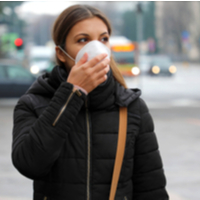Dental expert raises concerns over the impact of COVID-19 on oral health standards in poorer regions

The president of the Oral Health Foundation, Dr Ben Atkins, has raised concerns over the potential impact of COVID-19 on oral health standards in poorer regions of the UK.
Research suggests that there are significant gaps in standards between deprived and affluent areas, most notably among children. In Blackburn and Darwen, 50.9% of children have visible signs of decay, compared to a national average of 23.4%. In East Sussex, just 8.7% of children have decayed teeth.
The Coronavirus has impacted everyone, but there is no doubt that some have suffered more than others. Lost incomes, unemployment, reduced working hours and mental health issues could all contribute to more extreme and noticeable differences between regions in the future, Dr Atkins fears. Following this year’s National Smile Month campaign, which is run by the Oral Health Foundation, Dr Atkins is keen to start conversations about health inequalities and to encourage local councils, government ministers and independent bodies to look at ways in which vulnerable people can be reached and areas where rates of decay are high can be targeted.
Improving oral health standards across the UK would have an impact on general health, performance at school, self-esteem and spending. In 2017 alone, extractions carried out as a result of preventable decay in children cost the NHS more than £50 million.
One of the main challenges facing dental providers and the NHS is coping with the demand for treatment. Practices have been closed for several weeks, and even those that have reopened are now limited to a maximum number of patients per day. It will take time to work through backlogs, and there is a worry that those who are most vulnerable will slip through the net. Dr Atkins suggested that the scale of task is significant, but added that simple measures could have a massive impact. Improving oral health education, providing information about teeth cleaning and healthy eating and giving out oral health packs to the poorest families is a start. It’s also essential for local dental practices to work with councils and regional and national departments to try and improve access and encourage positive oral health habits.


